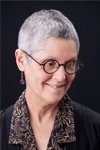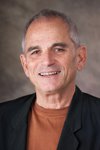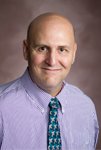Downtown Arts Series to feature poetry of retired math, classicist professors
Editor's note: Due to weather-related travel hindrances, this poetry reading has been postponed until Nov. 14.
Together Judith Roitman and Stanley Lombardo educated University of Kansas students for 76 years about mathematics and literary classics.
Along the way, they also developed and shared their passion for poetry. The married couple will present an evening of their creations on Saturday during the University of Houston-Victoria Downtown Arts Series.
The free reading will take place at 7 p.m. at the UHV Center for the Arts, 204 N. Main St. The event is open to the public, and refreshments will be served.
“While the topics and types of poetry will be different, Ms. Roitman and Mr. Lombardo’s poems are intense in their own contexts,” said Charles Alexander, UHV poet and designer in residence and co-curator of the downtown series. “I think the audience will be on the edge of its seat.”
Judith Roitman was a mathematics professor at KU for 37 years before retiring earlier this year. Her “No Face: Selected and New” appeared in 2008. Since then, she has published a number of chapbooks including “Slackline,” “Furnace Mountain,” “Ku: a thumb book” and “Two: ghazals.” Her work has appeared in a number of journals, most recently in Yew, Talisman, Horse Less Press, Otoliths and Eleven Eleven.
“I write what is sometimes called experimental poetry, although it never seems particularly experimental to me,” Roitman wrote on her faculty page. “But I am somewhat obsessed about the subtle relationships/disjunctions among language, world and mind, which seems to be a common thread of much – although not all – experimental writing. I tend to write from rather than about.”
Lombardo is a renowned translator of classical literature – particularly epic Greek and Latin poetry – and a poet who performs the translations.
His translations include Homer’s “Iliad” and “Odyssey.” He also translated “Hesiod, Callimachus, Sappho,” a finalist for the 2003 Pen Literary Award for Translation; Virgil’s “Aeneid,” a finalist for the 2005 Pen Literary Award for Translation; “Dante’s “Inferno” and Ovid’s “Metamorphoses.”
In 2010, he received the Umhoefer Humanities Award for his work as a translator.
Before retiring in 2014, Lombardo taught Greek and Latin at all levels, as well as general courses about Greek literature and culture. He has given dramatic readings of his translations on campuses throughout the country, as well as venues such as the Smithsonian Institution and the Chicago Poetry Center and on National Public Radio.
“He’s been praised for his performance pieces,” Alexander said. “Many earlier Greek and Latin translations were kept in a more conservative, stuffy language, but Lombardo’s translations are very contemporary.”
Lombardo also has an interest in Asian philosophy and has co-authored a translation of “Tao Te Ching.” His translations of Dante’s “Purgatorio” and “Paradiso” are forthcoming. He also is working on a translation of the “Epic of Gilgamesh.”
The Downtown Arts Series presents an array of groundbreaking art practices to the Victoria community and stimulates dialogue about the arts as a presence in people’s lives. Six more presentations are scheduled this school year by poets, musicians, literary scholars and social critics.
For more information about the series, contact Alexander at 361-703-5147 or alexanderch@uhv.edu.
The University of Houston-Victoria, located in the heart of the Coastal Bend region since 1973 in Victoria, Texas, offers courses leading to more than 80 academic programs in the schools of Arts & Sciences; Business Administration; and Education, Health Professions & Human Development. UHV provides face-to-face classes at its Victoria campus, as well as an instructional site in Katy, Texas, and online classes that students can take from anywhere. UHV supports the American Association of State Colleges and Universities Opportunities for All initiative to increase awareness about state colleges and universities and the important role they have in providing a high-quality and accessible education to an increasingly diverse student population, as well as contributing to regional and state economic development.
Jeremy Shapiro
361-570-4350









